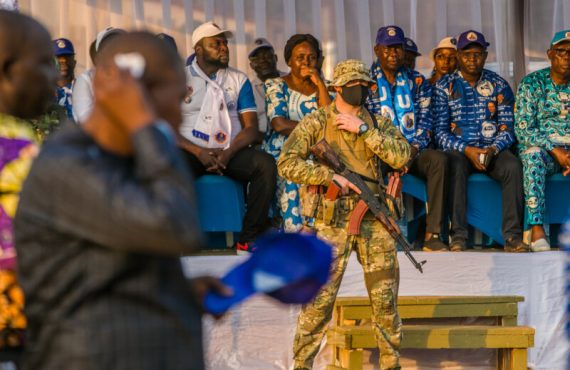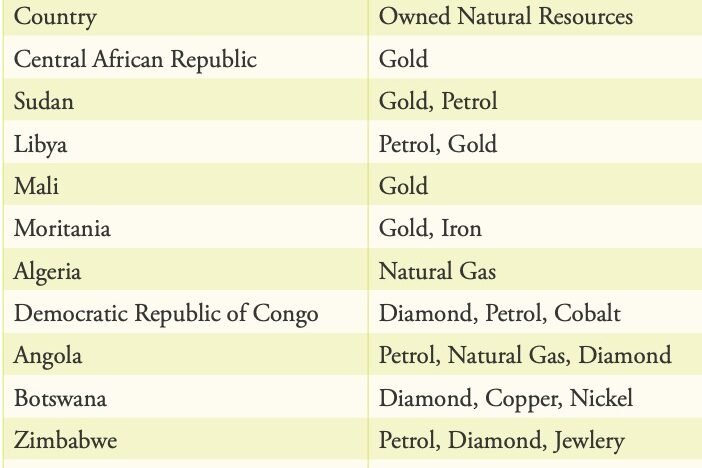T
he Wagner Group, a private military company based in Russia, has been making a name for itself in the global system since 2014. Wagner’s leader Yevgeny Prigozhin, a close figure to Putin, is also known as “Putin’s cook.” Prigozhin announced that he founded Wagner specifically to support Russian forces in the Donbas Warin May 2014. Wagner has a presence both in Russia and across the world, including the Middle East, Africa, Europe, and Latin America. The group is a major player in various conflict zones around the world, including Libya, Syria, Ukraine, the Central African Republic, and Mali.
In line with Russia’s interests, Wagner is active in at least 15 countries around the world, at least 10 of which are in Africa, providing military services, including the necessary personnel, training, and logistics. Wagner operates as a private military company, and until the crisis, i.e., the June 23 mutiny, there was no official claim that its activities were carried out in line with national interests and the Russian government.
The leader of the Wagner group, Yevgeni Prigojin, claimed that Russian airstrikes on Wagner camps had caused the deaths of thousands of militiamen. However, the Russian Ministry of Defense dismissed these claims as provocations. The Federal Security Service, on the other hand, accused Prigojin of trying to start an internal conflict and called for his arrest. The Kremlin stated that Putin was aware of Prigojin’s actions and had taken the necessary measures.
In the process, Putin emphasized that those who took up arms would be punished. Prigojin and the Wagner group claimed that a crisis had begun. However, before the crisis escalated, Belarusian President Lukashenko intervened, easing tensions, and the Wagner forces withdrew. Thus, the case against Prigojin was dropped and he was sent to Belarus. As a result, the Wagner fighters were prosecuted and had the option to sign contracts with the Russian Ministry of Defense.
The Wagner Group is said to have close links with Vladimir Putin. The mutiny, which began on June 23 and lasted only a short time, has therefore deeply affected Russia. Especially in recent years, Wagner had become an important actor due to the expansion of its sphere of influence in Africa, its influence on the resources in the regions where it is located, and global security reasons. Wagner’s mutiny has thus raised questions about Russia’s domestic and security dynamics as well as the future of its global policy. Although Wagner’s presence in Africa is linked to civil wars, conflicts, and security issues, it is the natural resources and mining activities in the resource-rich regions in which it operates that attract the most attention.
Wagner as an instrument of influence in Africa
With close ties to the Kremlin, Wagner’s role in Russia is characterized by active involvement in crisis zones and regions where global and regional tensions are high. Wagner’s operations in African countries such as the Central African Republic, Mali, Sudan, and Libya have had a ripple effect enabling Russia to establish a presence in strategic regions and play an active role across the continent.
Wagner is known to be present in Mauritania, Algeria, Burkina Faso, the Democratic Republic of Congo, Angola, Botswana, Zimbabwe, Madagascar, and Mozambique. Russia’s policy through Wagner helped increase Russia’s influence in Africa, allowing it to achieve its geopolitical and strategic goals. However, the mutiny led by Prigozhin raises questions about the rationality of this policy.
Wagner’s strategic goals in Africa: Political instability and mining
As in the past, Africa’s natural resources and reserves are of strategic importance to many actors today. These resources have the potential to influence the geopolitical interests of global actors and shape regional and global balances of power.
Wagner’s mutiny will have a major impact not only on Russia’s domestic politics and its Africa policy, but on global politics as well: Wagner provided military services and training in African countries, and held lucrative economic interests far beyond military services by being actively involved in trade with African countries.
From an economic perspective, it is well known that Wagner played an active role in the mining sector. Its involvement in countries with natural resources such as gold, diamonds, and cobalt reinforces the perception that it acted in line with Russia’s economic interests and ensured security of supply for Russia.
After the mutiny, Russia, which had consolidated its presence in Africa through Wagner, will have to revise its African policy. It is likely that Wagner’s role in Russia’s Africa policy will be gradually eliminated and replaced by another private military company; Prigozhin will be taken out of the equation; Wagner will be integrated into a position under the Ministry of Defense; and Putin will maintain direct control over Wagner.
Wagner’s future in Africa
Given the economic gains it has made from the natural resources in the regions it controls, Wagner will not want to withdraw from Africa. Most probably, Russia will conduct a “purge” within Wagner, whose long-standing relations with different social structures in African countries should also be taken into account.
In order for Wagner to operate in Africa, a continent with diverse cultures and social structures, it has had to cooperate with the locals. For example, it is known that gold mines and mining operations are concentrated in Kordofan and Darfur in Sudan, Kidal and Sikasso in Mali, and the Bambari-Bria line in the Central African Republic along the country’s western border.
Given that some ethnic elements in these regions have attempted to rebel against state authority in the past, Wagner is likely to view these groups, and anti-government groups in general, as a tool to be used against the current administrations.
Wagner will possibly attempt to protect the areas under its control by incorporating or militarily strengthening potential elements within these groups. The realization of such a scenario could pose a threat to existing governments and disrupt domestic political balances. This could lead to further instability and conflict, and exacerbate regional tensions and global rivalries.
Wagner’s mining operations in Africa
Wagner’s mining operations in African countries also provide employment opportunities in various regions. However, this occurs in areas controlled by anti-government groups and the contribution of employment to the country’s economy is questionable. In Sudan, for example, which has been in crisis since April 2023, Wagner is partnering with Hamdan Dagalo, former vice president of the Sudanese Sovereignty Council.
Dagalo’s Rapid Support Forces (RSF) receive higher salaries than soldiers in the Sudanese army. At this point, Wagner’s assistance to Dagalo provides an economic advantage to the RSF, prolonging the crisis, and introducing risk factors.
It is also possible that Wagner could be attached to the Russian Ministry of Defense and turned into a power element under the control of the government. This would allow Russia to manage its practices in Africa in a more centralized manner and protect its interests more effectively with a structure that would be easier to control and would resemble the RSF in Sudan. However, such a development has disadvantages both for Russia and African countries.
Recommended
The future of Wagner
Given the problems that the RSF has caused Sudan from April 2023 to the present, the rationality of such a transformation by Wagner is questionable. Unless it can be officially kept under control, organizations such as the Wagner Group and the RSF should always be expected to pose major problems in terms of national, regional, and global security.
Another scenario includes the rehabilitation of Wagner and the use of alternative private military companies in Africa. However, as developments stand today, it seems highly unlikely that a different private military company will gradually eliminate and replace Wagner. This is due to the influence of Wagner and Prigozhin in Africa today. However, it is also possible that Prigozhin’s impact on Wagner could be reduced or eliminated by Putin if the appropriate conditions are provided and a different element could replace him. As part of the power struggle in Africa in recent years, Russia has used Wagner to fill the power vacuum left by France. Especially in West African countries such as Mali and Burkina Faso, Russia’s use of Wagner to demonstrate its power has drawn attention.
However, in the aftermath of Wagner’s mutiny, Russia has the option of using alternative companies in its African policy as the sudden liquidation of Wagner could lead to more conflict and instability, giving rise to additional regional security challenges and allowing terrorist organizations to take advantage of potential areas of instability and power vacuums. Therefore, it is safer/best if Russia gradually restructures Wagner in a controlled manner to minimize the potential risks it poses.
Alternatively, a new, less visible and controlled private military company could establish a presence in Africa. In this way, Russia’s presence and interests in Africa have a chance to move forward, considering the lessons learned from the current process with Wagner. The Wagner-run companies that will extract Africa’s rich resources, even if they are under state control, will always have the potential to lead to mutiny against the state due to the richness of the natural resources and the high economic returns. The only safe option is for the state to ensure a monopoly
Therefore, in the last sentence, the state should act by holding the monopoly of power to maintain its power in different geographies without losing control over military power.






